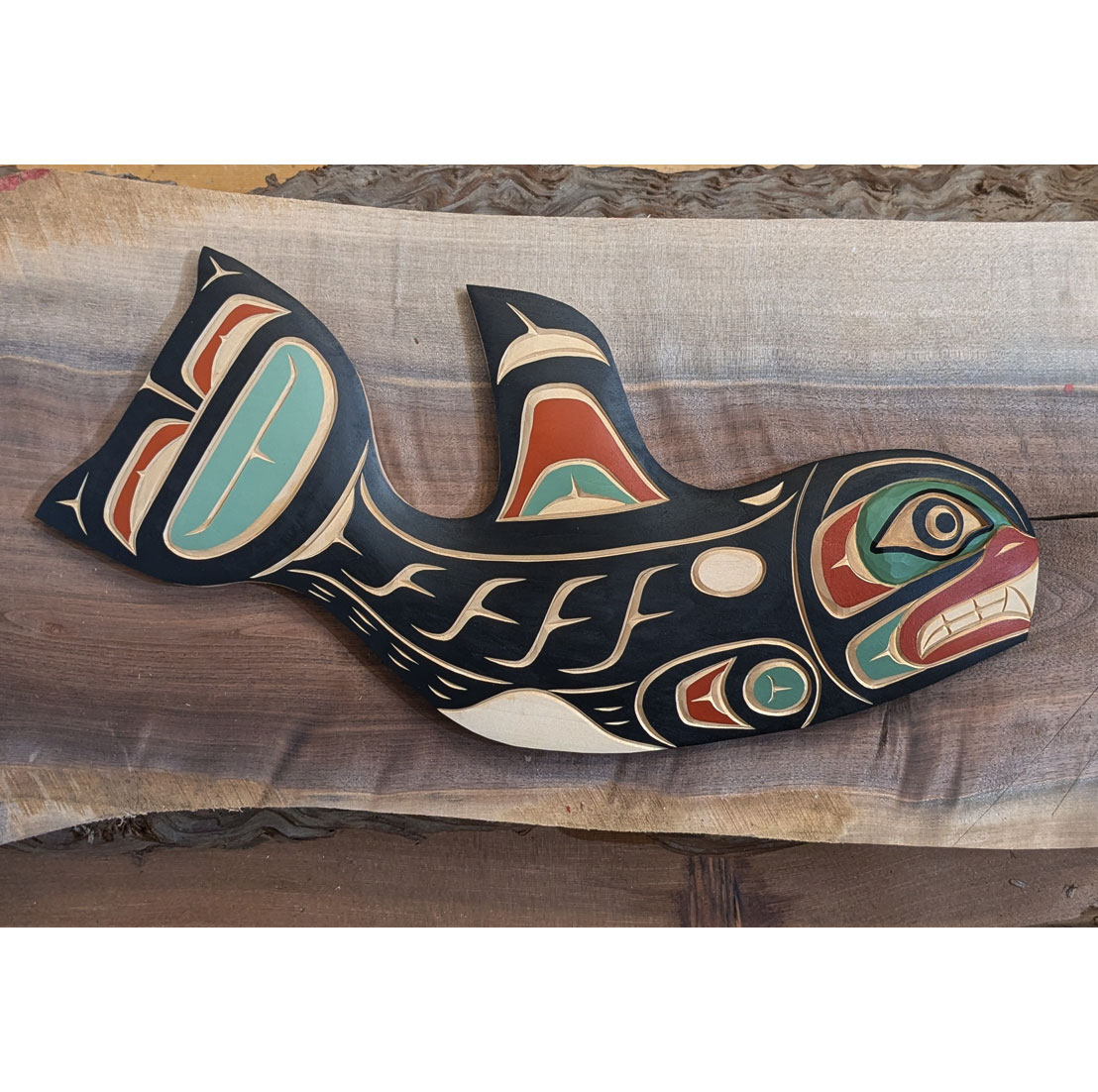First Nations Orca Panel
$625.00
Joyful First Nations Orca design captures the essence of a wild Orca whale in the water. Beautiful curved form. Measures 17 X 7.5 X .75, priced at $650.
This artist is a member of the Squamish Nation which consists of descendants of the Coast Salish Aboriginal peoples, originating from the greater Vancouver area, Gibson’s Landing and Squamish River watershed. This young artist’s style is a blend of strong family Kwakwaka’wakw art styles, and unique personal taste towards contemporary inspirations. He is a member of a premier artistic family.
Squamish is a town north of Vancouver, in British Columbia, Canada. It’s at the northern tip of the island-dotted Howe Sound, and surrounded by mountains like the Stawamus Chief, a huge granite monolith.
Sḵwx̱wú7mesh sníchim is one of the 10 languages within the Coast Salish branch. The Squamish People, who are the Indigenous Peoples that speak Sḵwx̱wú7mesh sníchim, are often referred to as the Squamish Nation today.
Kwakwaka’wakw oral history says their ancestors (ʼnaʼmima) came in the forms of animals by way of land, sea, or underground. When one of these ancestral animals arrived at a given spot, it discarded its animal appearance and became human. Animals that figure in these origin myths include the Thunderbird, his little brother Kolas, the seagull, orca, grizzly bear, or chief ghost. Some ancestors have human origins and are said to come from distant places.
The first documented contact with Europeans was with Captain George Vancouver in 1792. Disease, which developed as a result of direct contact with European settlers along the West Coast of Canada, drastically reduced the Indigenous Kwakwaka’wakw population during the late 19th-early 20th century. Kwakwaka’wakw population dropped by 75% between 1830 and 1880. The 1862 Pacific Northwest smallpox epidemic alone killed over half of the people.





